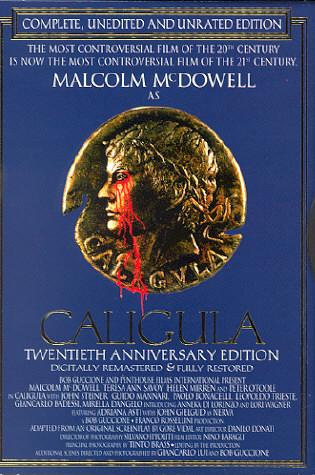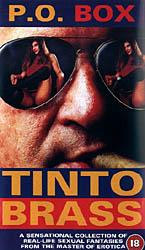|
Salon Kitty, 1976. 
It's Berlin, 1939. Vallenberg (Helmut Berger) an SS Officer who wears swastika sweat-bands and is only able to smoke a cigarette vertically, like all SS Officers, is lisping instructions to his toadying second-in-command.
He is setting up a Nazi sanctioned brothel so he can listen into confessions of disloyalty to the Furher. Apparently men routinely give information to prostitutes in the afterglow of orgasm. A hare-brained scheme you might think and you wouldn't be wrong, but Vallenberg has the means (and the boiling sexual repression) to get these things done.
'Leave no stone unturned' he says to his flunkies.
A frankly bizarre pig slaughtering scene then ensues, showing a sawdust strewn floor glistening trotters and strings of eviscera, to a jaunty piano piece and over dubbed grunting. This scene leads masterfully into a bourgeois dinner party (Ah. Do you see what hes done there? Clever) where we meet our heroine Margarita (Teresa Ann Savoy, the sort of woman the seventies did so well, all hip bones, chipped teeth and a permanent cold. The acme of femininity. Grrr! ). Margarita is a full-on Hitler youth, a sort of student radical in nice shiny shoes. So, it's no surprise she ends up naked on parade in a gymnasium being inspected by the clenched jawed but twinkly-eyed Vallenberg - who evidently knows what he likes. Things are going nicely to plan when the unthinkable happens; Margarita falls for troubled air-man, Hans. When he is hanged for cowardice following Vallenberg 's intervention, Margarita shoots the messenger and vows revenge on the Uber Commander. She gets it too.
What happens in between is some staggeringly ill-advised musical numbers, starring Ingrid Thulin (who must have been wondering how her career had gone from Bergman to Brass inside of ten years), endless references to the paintings of Otto Dix, an awful lot of twanged suspender elastic, and some poorly charged glasses of champagne (accompanying the campest pantomime Nazis this side of Lieutenant Gruber). That purple rubber SS uniform is SO a good look.
Probably the most unpleasant film in Brass' long, and unpleasant career.
Caligula, 1979 
Then again this is no slouch. Caligula (Malcolm MacDowell) is happy gambolling in his Arcadian idyll with a flock of sheep and his sister Drusilla (Teresa Ann Savoy, again - practically clothes-phobic in this one) to the haunting strains of Khachaturian's 'Theme from the Onedin line'. But the machinations of Imperial government grind exceedingly small and soon he is transported to the Island of Capernium, where his uncle Tiberius (the redoubtable Peter O'Toole) rules.
Tiberius is a bad and unpopular Emperor. We know this because he is covered in scabs and kills people in an off-hand whimsical manner. So when Nerva (John Geilgud. Yes, JOHN GEILGUD. Looking as confused as we are), Tiberius' adviser and the only decent fella in town commits suicide in a fish-tank, Caligula seizes the opportunity (and his uncle's throat), and becomes Caesar himself.
This goes down well with the people and for a while things are looking good. Caligula fancies getting married and naturally thinks of his sister - in the Egyptian manner. She poo-poo's the idea and packs him off to the temple of Isis under heavy disguise (think the Carry On Team trying to infiltrate a harem) to procure a vestal virgin. What he gets is Caesonia (Helen Mirren, a primed subject if ever I saw one) and he falls deeply in love.
Unfortunately, Drusilla then dies of a slight head-cold and her long and startlingly undignified death scene drives Caligula mad. Mad I tells ya! Soon he's electing his horse a god, killing all his relatives, doing a crazy naked thumb dance in the rain and generally acting the giddy goat. His conduct at wedding receptions is completely beyond the pale! The upshot of all this unpleasantness is that the Praetorian guard step in and kill him. End of movie.
After production Bob Guccione, editor of Penthouse and the film's backer, had it re-cut and interspersed with hard-core footage, tampering with Brass' vision. It's interesting to note that the first image of horror in the credits sequence, that of a Roman coin bearing the image of Caligula dripping with blood, is neatly underscored with the name Bob Guccione. Was Tinto drawing a parallel between the defiler of Rome and the defiling of his picture? I doubt it. Subtlety's not exactly Tinto's strong suit. Miranda, 1985 
Miranda marks the start of the mature Tinto Brass. Though you must appreciate that this is a relative term.
After twenty-odd-years of trying to make difficult, compelling and erotic films, of seeing his work cut to shreds by clumsier, less artistic hands, of working on huge sets with an unwieldy international cast, of the insufferable dictation of linear narrative and intelligible dialogue, enough was enough. It was time to trim the fat. From now on it would be back to basics, back to his first love. From now on, all of his films would be about women's arses. Like Walerian Borowczyk or Russ Meyer (albeit a Russ Meyer a foot shorter and facing the wrong way) Brass' chief concern is capturing the supple ripeness of the female form as often as possible, and from surprisingly intrusive angles. To this end, he has established a series of constants in his own filmic universe, an erotic shorthand full of sexual props.
For Tinto, there will always be an oval mirror over any bed, just as there will always be a camp dancing sequence during which the heroine will feel compelled to flash her baggy, french knickers. There will invariably be a dream sequence, usually on a beach, usually as a tribute to Fellini. Every other sex scene will be played for laughs and everytime a character goes to the cinema it will be to see another Tinto Brass film. And finally (and perhaps for Tinto, most importantly), any woman, no matter what the circumstances and apropos of nothing, must be allowed to urinate as and when she pleases, preferably in public, and preferably back lit.
I now present to you the plot of Miranda. Not in essence, this is not a thumb-nail sketch or a five word pitch. This is all that happens: Miranda (Serena Grandi) the landlady of an Italian Taverna (During WW2 again, but this is altogether a lighter piece than 'Salon Kitty') has to choose between three suitors: a rich pensioner, an aggressive American GI or her lowly waiter. I don't think I'm spoiling anything by telling you that -yes- she picks the waiter. PO BOX: TINTO BRASS, 1995 
In Italy, Tinto is apparently known as " Il Maestro " and is revered by thousands of girls, clammering to appear in one of his movies. Why thousands of Italians have a hankering to take a piss in front of a film-unit, while a fat man plays pocket billiards, is one of those questions I find myself ill-equipped to answer. The fact of the matter remains that Tinto is routinely inundated with letters, photos and videotapes of young women presumably desperate for money, and willing to flash a little flab to get it.
Tinto himself stars in this one, the ongoing story of his heroic attempts to cop off with his impressively stacked personal assistant (Cinzia Roccaforte), linking the various saucy episodes contained here. Actually, seeing Tinto in the flesh is quite risky in what purports to be an erotic vehicle. A cross between Nixon and Hitchcock, stippled with perma-stubble, his skin a waxy sheen like a well-polished apple and chewing constantly on the butt of a Monte Christo, Tinto looks like the sort of bloke who collects lost gloves from school railings.
To watch his spidery eyes welling with lust as he restlessly attempts to get his PA to climb step-ladders or bend over whilst eating celery, would put the most ardent Europhile off subtitles and hairy armpits for life. The fantasy sequences described by the girls are fairly mundane (phone sex, away day prostitution, losing your wife in a game of cards, that sort of thing...) and all of Tinto's fantasies are well represented - but the whole thing is cobbled together as if by a soul in crisis. It has the hallmarks of a waning libido, something akin to Picasso's final masturbatory scrawls, the ramblings of a dirty old man who can still pay girls to show him their tits.
The final scene where Tinto unbuttons his fly and a tromboning elephant's trunk emerges speaks volumes.
Maestro? My arse |